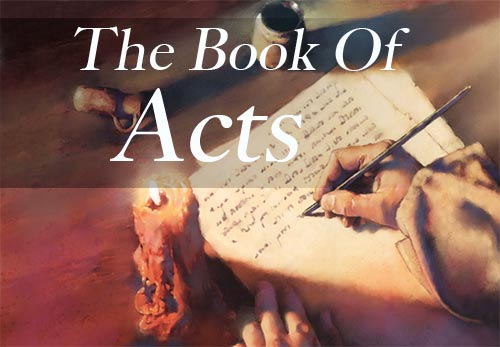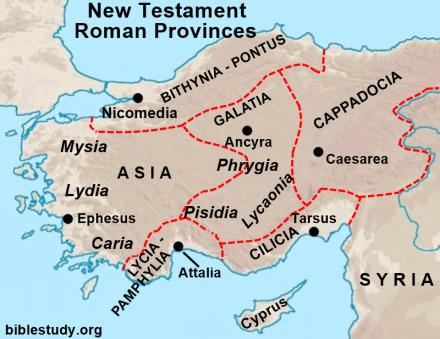Our religious journeys are scary and inspiring, exciting and nerve
racking.
For me, over half a century in the ministry has been all that and
more.
The pages on this site grew out of my journey.
I hope they will be meaningful to you.
.
.
Book Previews
Other Materials
Confessions of a Minister
Baptists
Devotions for Caregivers
Biographical Sketch
100 Devotions for New Christians
Intentional Interim Ministry
Ephesians: The Mystery of His Will
Tobacco Farming in the 1950s
Gray Matters: 100 Devotions for the Aging
Traditional Interim Ministry
Interfaith Meditations
Women in Ministry
More Commandments
Sermon Videos
Psalms Devotions
Christian Citizenship
Revelation Devotions
Living Sacrifices
So Much to be Thankful For
Catalog of Materials
Catalogue of Available Materials
Each of the eleven books
listed above is previewed
on its own web page, with purchasing information provided.
The other Bible studies
listed below are all previewed on this
web page. They are designed to be copied on 8.5X11 paper.
Often, upon request one copy of any of the Bible studies may
be available free, along with permission
to make a specified number of copies. For your copy, email
edrafr9@gmail.com
Acts, 134 pages
Agents of Reconciliation, 144 pages
Be Ye Perfect, 74 pages
Christmas Devotions (unfinished)
Do You Have any ID? Volume 1, 81 pages
Do You Have any ID? Volume 2, 91 pages
Faith for Changing Times, 56 pages
Galatians Verse by Verse, 71 pages
Growing Up into Him, 43 pages
Heroes and Villains, Volume 1, 117 pages
Heroes and Villains, Volume 2, 89 pages
Heroes and Villains, Volume 3, 91 pages
Heroes and Villains, Volume 4, 84 pages
Introduction to the New Testament, 137 pages
Introduction to the Old Testament, 88 pages
James Verse by Verse, 28 pages
Let's Talk About the Things We Don't Talk About, 81 pages
Parables of Jesus, 117
The Prophets, 90
Sermon on the Mount, 117 pages
Women in Ministry, 23 pages
Introductory Overview of
Acts
By
Edwin Ray Frazier
This following study guide contains Bible study material
for 13 small group sessions. In some cases the guide may be
available free upon request. For more details, contact
Ray Frazier at edrafr9@gmail.com.
The Bible book of Acts is often referred to as:
Introduction
When we look on line to map out our vacation route, we have to
choose a helpful level of focus on the map. If our focus is too
narrow, then the details become far too numerous to be practical.
If focus is too broad, then we do not see some important directions.
We may compare the book of Acts to a detailed map of the entire
state. This Bible study guide is designed with thirteen sessions of
one hour each in mind. Some may prefer a more narrow focus with more
detail, others a broader focus with less detail. Hopefully the design
will prove helpful to all who participate in the study, either
individually or in a group.
The abbreviated Table of Contents below can provide an outline overview.
This guide contains enough material that it can be treated
effectively in 26 sessions rather than 13. Each session has four
sections. So, if in each session we study two sections rather than
four, the total number of sessions can be doubled from 13 to 26.
The up side of that is that the study can be deeper and more
thorough. The down side is that not many groups of Bible students
have the interest and discipline to remain focused on one subject
that long.
Acts is the story of the fantastic growth of the gospel and
the church in only two or three decades. It is an exciting
and powerfully encouraging account of the power of our God,
his gospel, and his church.
May our God bless our Bible study.
Session 1 Acts 1
Page 11
Session 2 Acts 2
Page 21
Session 3 Acts 3-4:32a Page 29
Session 4 Acts 5:1-6:7 Page 38
Session 5 Acts 6:8-8:40 Page 47
Session 6 Acts 9-10:16 Page 57
Session 7 Acts 11-12 Page 65
Session 8 Acts 13-14 Page 74
Session 9 Acts 15-16 Page 83
Session 10 Acts 17-18 Page 92
Session 11 Acts 19-20 Page 101
Session 12 Acts 21-26 Page 108
Session 13 Acts 27-28 Page 118
What is Worth Learning
Page 124
List of Available Small Group Studies Page 128
Participating in Small Group Discussion Page 131
You Can Facilitate a Group
Page 132
Holy Spirit Icons Used in These Pages Page 134
Introductory Overview of
Agents of Reconciliation
Sixty-five Devotions By
Edwin Ray Frazier
This study guide contains Bible study devotional material
for 13 small group sessions. In some cases the guide may be
available free upon request. For more details, contact
Ray Frazier at edrafr9@gmail.com.
Foreword
It was Mama's flower bed. Home from college, I stood on the back
porch and reminisced, pondered, and counted my blessings.
Mama caught me musing, and asked about the flower bed,
Agents of Reconciliation make a huge difference. That's what
this devotional study is about. The world looks a lot better where
they have been along.
Lucy tells Charlie Brown that she is about to begin some new hobbies.
It's a tragedy that we can spend our lives just keeping busy,
when we could be, should be, making a difference.
Welsh poet David Whyte made the intriguing observation,
Whyte, like most of us, wanted his life to matter. Even in
some small way, most people want to make a difference for good,
and, at least to some degree, we want to be happy.
But it doesn't just happen.
The 65 devotions herein are prepared in the prayer that
through them some who read them will hear the Lord's voice
calling us to be Agents of Reconciliation in a world with
rampaging ill will. The devotions are arranged so that a weekly
group study session can share together about the previous five
devotions, and thereby take advantage of each other's insights.
What recent news events demonstrate our need for
Agents of Reconciliation?
Abbreviated Table of Contents
Page
1 Contents
2 Foreword
3 Contents
7 Introduction
I. Becoming an Agent of Reconciliation
8 First Week: Devotions 1-5
18 Second Week: Devotions 6-10
II. Reconciling With Others
28 Third Week: Devotions 11-15
38 Fourth Week: Devotions 16-20
III. Trigger Reconciliation Among Others
48 Fifth Week: Devotions 21-25
58 Sixth Week: Devotions 26-30
IV. Hurdles that Agents of Reconciliation Encounter
68 Seventh Week: Devotions 31-35
78 Eighth Week: Devotions 36-40
V. Bible Characters' Reconciliation Abilities
88 Ninth Week: Devotions 41-45
98 Tenth Week: Devotions 46-50
108 Eleventh Week: Devotions 51-55
VI. World Peace
118 Twelfth Week: Devotions 56-60
128 Thirteenth Week: Devotions 61-65
138 Afterword
139 What is Worth Learning
141 Participating in Small Group Discussion
142 Honesty and Respect in Discussion
143 You Can Facilitate a Group
Introductory Overview of
Be Ye Perfect
By
Edwin Ray Frazier
This following study guide contains Bible study material for 13 small group
sessions. In some cases the guide may be available free upon request.
For more details, contact Ray Frazier at edrafr9@gmail.com.
Abbreviated Table of Contents
Page
1 Title Page
2 Contents
3 Introduction
4 1 Be Perfect
9 2 To Be Like God
14 3 Suffering
19 4 Treasure in Heaven
24 5 Don't just have faith; Do Something!
29 6 Perfect Speech
34 7 Got Bible?
39 8 Harmony
44 9 The Fullness of Christ
49 10 What's in Your Toolbox?
54 11 Obey, Plain and Simple
59 12 Know Christ
64 13 Making Holiness Perfect
69 Aims of These Bible Study Materials
71 You Can Facilitate a Group
Introduction to Be Ye Perfect
The 13 Bible studies in this booklet launch from one of Jesus' most
intriguing commands:
For us, perfect means 100%, A+, total victory, absolutely right,
a positive verdict with no doubt or hesitation, a bull's eye,
a blue ribbon, first place, etc.
There's nothing wrong with our understanding the Lord to command
us to be 100% dedicated to Him, or to earn an A+ in Christian living,
or to achieve total victory over evil in our lives. But there's more,
much more, in the word
In the first study we'll consider a basic biblical definition
of perfection: a skeleton of the meaning behind the word in
Bible times. In the other twelve studies we'll flesh out
that skeleton from other Bible passages.
At times it will seem like we are doing no more than
arranging familiar teachings in another pattern. That may
be true for some. However, there is indeed a significant
difference in the modern meaning and the biblical meaning
of perfection. If we invest the thought energy to comprehend
and appreciate that difference, then we can find valuable
new spiritual challenges. Grappling with these challenges
will both bless us, and also equip us to be a greater blessing
to others in the name of our Lord.
Introductory Overview of
Do You Have Any ID? Volume I
By
Edwin Ray Frazier
This is the first of two study guides, each containing Bible
study material suitable for 13 small group sessions. To cash a
check or make a purchase, we may be asked to prove our identity.
Each of the two volumes discusses 13 Christian identity traits
that mark us as Christian.
In some cases a guide may be available free upon request.
For more details, contact Ray Frazier at edrafr9@gmail.com.
The thirteen sessions in Do You Have Any ID? Volume 1 are:
1 The love mark: The God Trait (Gal 5:22)
2 The joy mark: The Jailbird Trait (Gal 5:22)
3 The peace mark: The Irene Trait (Gal 5:22)
4 The patience mark: The Job Trait (Gal 5:22)
5 The kindness mark: The David Trait (Gal 5:22)
6 The goodness mark: The Lincoln Trait (Gal 5:22)
7 The faithfulness mark: The Canary Trait (Gal 5:22)
8 The gentleness mark: The Strong Man Trait (Gal 5:23)
9 The self control mark: The Daniel Trait (Gal 5:23)
10 The confidence mark: The Peter Trait (Isa 30:15)
11 The forgiving heart mark: The Father's Trait (Mat 18:21-22)
12 The compassion mark: The Good Samaritan Trait (Luk 10:33)
13 The servant spirit mark: The Slave Trait (1Pe 5:5)
Introductory Overview of
Do You Have Any ID? Volume II
By
Edwin Ray Frazier
This is the second of two study guides, each containing Bible
study material suitable for 13 small group sessions. To cash a
check or make a purchase, we may be asked to prove our identity.
Each of these two volumes discusses 13 Christian identity traits
that mark us as Christian.
In some cases a guide may be available free upon request.
For more details, contact Ray Frazier at edrafr9@gmail.com.
The thirteen sessions in Do You Have Any ID? Volume 2 are:
1 The Encouragement Mark: The Barnabas Trait Acts 4:36
2 The Submissiveness Mark: The Fear of God Trait Eph. 5:21
3 The Reverence Mark: The Isaiah Trait Psa. 34:9
4 The Strong in the Lord Mark: The Paul Trait Jos. 1:9
5 The Justice Mark: The Twenty-first Century Trait Psa. 82:3-4
6 The Assurance Mark: The Esther Trait 2Ti. 1:12
7 The Patriotism Mark: The Debtor Trait Rom. 13:5-7
8 The Discretion Mark: The Good Judgment Trait Pro. 16:22
9 The Honesty Mark: The Nathanael Trait Eph. 4:24-25
10 The Hope Mark: The Anathoth Trait Rom. 15:13
11 The Witness Mentality Mark: The Blind Man Trait Acts 1:8
12 The Quietness Mark: The Elijah Trait 1Th. 4:11
13 The Spirit Filled Mark: The Baptism Trait Acts 1:5
We aim for leaders who facilitate interaction rather than
leaders who consider themselves teachers, experts, or authorities.
May the Lord of the Bible bless our Bible study together
with a good balance of head knowledge and heart knowledge.
Introductory Overview of
Faith for Changing Times
By
Edwin Ray Frazier
The following study guide contains Bible study material for 13 small group
sessions. In some cases the guide may be available free upon request.
For more details, contact Ray Frazier at edrafr9@gmail.com.
Each of 13 sessions highlights biblical truth about ways
we can be faithful to unchanging principles in changing times.
We want to remain anchored in Christian faith.
The 13 session titles are:
Don't Get Tangled Up
God Calls us Forward
Lift Up Your Eyes; It's Time to Move On
Do Not Be Afraid of Tomorrow; God is Already There
Faith for the Future
Stronger and Stronger
Be Like the Ant: Work Hard
Discretion
I'm Doing Something New
Someone to Fill the Gap
The Land of Beginning Again
Turning to Tomorrow
Stay Alert; Watch Out for the Devil
Introductory Overview of
Galatians Verse by Verse
By
Edwin Ray Frazier
As the title indicates, this is a verse by verse
treatment of Paul's letter to the churches in Galatia,
beginning with 1:1 and discussing each verse through 6:18
in turn. It is suitable for individual or group study. Bible students
may devote a short time or a long time to the six chapters
and 149 verses, as they prefer. Thirteen sessions will be reasonable.
In some cases the guide may be available free upon request.
For more details, contact Ray Frazier at edrafr9@gmail.com.
(Abbreviated) Table of Contents
Contents
Greetings: Grace and Peace 1:1-5
The Gospel Which is No Gospel 1:6-10
Steps to Authenticate our Faith 1:11-24
Finding Our Place of Service 2:1-10
Relate Equally to All God's Children 2:11-21
The Law and Faith 3:1-14
God's Promises to Abraham 3:15-22
We are Abraham's Children 3:23-29, 4:1-7
Care for the Churches 4:8-20
Children by Divine Authority or by Human Authority? 4:21-31
Freedom in Christ 5:1-15
Living by the Spirit's Power 5:16-26
Harvesting What We Plant 6:1-10
A Christlike Close 6:11-18
Introductory Overview of
Growing Up Into Him
By
Edwin Ray Frazier
This study guide contains Bible study material
for 13 small group sessions. Each of 13 sessions resources
Bible study about some aspect of growing up spiritually.
In some cases the guide may be
available free upon request. For more details, contact
Ray Frazier at edrafr9@gmail.com.
The thirteen sessions are:
Growing Up . . .
1 . . . From Graduate to Student
2 . . . From Proof Texting to Considering All Relevant Texts
3 . . . From Saul to Paul
4 . . . From Praying to Be Blessed, to Praying to Serve
5 . . . From Me-Centered to Others-Centered
6 . . . From Getting My Way to Supporting the Group
7 . . . From a Know-it-All to Trusting God
8 . . . From Judge to Witness
9 . . . From Church Comfort to Church Service
10 . . . From Evaluating to Supporting
11 . . . From Peace Lover to Peacemaker
12 . . . From Complaining to Salting and Lighting
13 . . . From Law to Spirit
Introductory Overview Of
Heroes and Villains, Volume 1
By
Edwin Ray Frazier
The following study guide is the first of four in the
series: Heroes and Villains. Each guide has thirteen sessions,
each session about one Bible character.
A well-facilitated discussion of interaction between Abraham and Sarah about Hagar is somehow a lot more meaningful than listening to a lecture about faith in family relationships.
In these sessions we're led to
discuss the real life experiences of real live people.
In some cases the guide may be available free upon request.
For more details, contact Ray Frazier at edrafr9@gmail.com.
(Abbreviated) Table of Contents
Contents
Introduction
1 Abraham
2 Jacob
3 Pharaoh
4 Moses
5 Joshua
6 Esther
7 King Saul
8 Samuel
9 Job
10 David
11 Isaiah
12 Jeremiah
13 Daniel
Aims of These Bible Study Guides
You Can Facilitate a Group
Terms
Approximate Bible Time Chart
Introduction
There are several legitimate ways for Bible study groups to
function. Our approach in the sessions before us now is set
forth as one of several valid approaches rather than as the
best or only appropriate approach.
There is a specific concept of group learning that gives shape and
form to these Bible study guides. That concept is reflected in the
use of the term
We aim ultimately not for learning facts or creeds, but for
learning right spirits in terms of Psalm 51:10 and
Galatians 5:22-23. Create in me a clean heart, O God;
and renew a right spirit within me (Psa 51:10 KJV).
Love, joy, peace, patience, kindness, goodness, faithfulness,
gentleness, and self control (Gal 5:22-23 NLT).
We aim for leaders who facilitate interaction rather than
leaders who consider themselves teachers, experts, or authorities.
We aim for each individual to hold firm convictions thoroughly
examined, and to listen appreciatively to others' convictions.
We aim for the Christian humility which shares convictions
as a witness.
We aim to avoid the religious arrogance in which convictions
are shared in the spirit of a judge, jury, or prosecuting attorney.
Nor do we see ourselves as defendants or defense attorneys.
We aim for several individuals to share in a safe environment,
by inviting those who talk least to speak up, and by encouraging
those who talk most frequently to talk a lot less.
We aim not only for mutual tolerance, but for mutual
respect and appreciation of others' views and convictions.
May the Lord of the Bible bless our Bible study together.
Introductory Overview Of
Heroes and Villains, Volume II
By
Edwin Ray Frazier
The following study guide is the second of four in the
series: Heroes and Villains. Each guide has thirteen sessions,
each session about one Bible character.
A well-facilitated discussion of Joseph's struggle to understand
Mary is somehow a lot more meaningful than listening to a lecture about
faith in confusing times. In these sessions we're led to
discuss the real life experiences of real live people.
In some cases the guide may be available free upon request.
For more details, contact Ray Frazier at edrafr9@gmail.com.
(Abbreviated) Table of Contents
Contents
Introduction
1 Matthew
2 Mark
3 Luke
4 John
5 John the Baptist
6 Joseph
7 Mary
8 Andrew
9 Peter
10 Pilate
11 Gamaliel
12 Paul
13 Barnabas
Aims of These Bible Study Guides
You Can Facilitate a Group
Terms
Approximate Bible Time Chart
Introductory Overview Of
Heroes and Villains, Volume III
By
Edwin Ray Frazier
The following study guide is the third of four in the
series: Heroes and Villains. Each guide has thirteen sessions,
each session about one Bible character.
A well-facilitated discussion of homely Leah's plight of living in
the shadow of Barbie Doll Rachel is somehow a lot more meaningful
than listening to a lecture about having faith when we get
overlooked and unappreciated. In these sessions we're led to
discuss the real life experiences of real live people.
In some cases the guide may be available free upon request.
For more details, contact Ray Frazier at edrafr9@gmail.com.
(Abbreviated) Table of Contents
Contents
Introduction
1 Lot
2 Hagar
3 Isaac
4 Rebekah
5 Esau
6 Leah
7 Joseph
8 Caleb
9 Samson
10 Ruth
11 Joab
12 Solomon
13 Elijah
Aims of These Bible Study Guides
You Can Facilitate a Group
Terms
Approximate Bible Time Chart
Introductory Overview Of
Heroes and Villains, Volume IV
By
Edwin Ray Frazier
This study guide is the fourth of four in the
series: Heroes and Villains. Each guide has thirteen sessions,
each session about one Bible character.
A well-facilitated discussion of the Prodigal son's return home is
somehow a lot more meaningful than being lectured about handling our past
mistakes. In these sessions we're led to discuss the real life
experiences of real live people.
In some cases the guide may be available free upon request.
For more details, contact Ray Frazier at edrafr9@gmail.com.
(Abbreviated) Table of Contents
Contents
Introduction
1 The Wise Men
2 The Herods
3 The Rich Young Ruler
4 The Prodigal Son
5 Zacchaeus
6 The Gerasene Demoniac
7 Thomas
8 Judas
9 The Good Samaritan
10 The Sower
11 The Antichrist
12 Stephen
13 Cornelius
Aims of These Bible Study Guides
You Can Facilitate a Group
Terms
Approximate Bible Time Chart
Introductory Overview Of
Introduction to the New Testament
By
Edwin Ray Frazier
Each of 13 sessions draws several biblical truths from one or
more New Testament books. All the New Testament books are treated.
We understand that an overview of the New Testament's
27 books is very different from a verse-by-verse treatment
of four or five verses.
Generally speaking, however, we approach any Bible study with
the same plan. A first question is,
(Abbreviated) Table of Contents
Contents
Bible Study Guidelines
The Four Gospels
1 Matthew
2 Mark
3 Luke
4 John
5 Acts
6 Romans
7 1 and 2 Corinthians, Galatians
8 Ephesians, Philippians
9 Colossians, Thessalonians
10 Timothy, Titus, Philemon
11 Hebrews
12 James, 1 and 2 Peter, 1, 2, and 3 John
13 Jude, Revelation
Appendices
A. Asceticism
B. Bible Time Charts
C. Challenges to Paul's Influence
D. Gnosticism
E. Jewish Legalism
F. Judaizers
G. Morality
H. Paul's Roman Citizenship
I. Paul's Roman Imprisonment
J. Place of Women
K. Revelation's Meanings
L. Roman Peace
M. Rome's View of Christianity
N. Slavery
O. Terms
P. Universalism and
Introductory Overview Of
Introduction to the Old Testament
By
Edwin Ray Frazier
Each of 13 sessions draws several biblical truths from one or
more Old Testament books. All the Old Testament books are treated.
(Abbreviated) Table of Contents
Contents
Bible Study Guidelines
1 Genesis, Exodus, Leviticus, Numbers, Deuteronomy
2 Joshua, Judges, Ruth
3 1 &2 Samuel, 1 & 2 Kings, 1 & 2 Chronicles
4 Ezra, Nehemiah, Esther
5 Job, Psalms
6 Proverbs, Ecclesiastes, Song of Solomon
7 Isaiah
8 Jeremiah, Lamentations
9 Ezekiel, Daniel
10 Hosea, Joel, Amos
11 Obadiah, Jonah, Micah
12 Nahum, Habakkuk, Zephaniah
13 Haggai, Zechariah, Malachi
Old Testament Time Chart
New Testament Time Chart
We understand that an overview of the Old Testament's
39 books is very different from a verse-by-verse treatment of five verses.
Generally speaking, however, we approach any Bible
study with the same plan. A first question is,
Introductory Overview Of
James Verse by Verse
By
Edwin Ray Frazier
As the title indicates, this is a verse by verse
treatment of James' letter, beginning with 1:1 and discussing
each verse in turn. It is suitable for individual or group study.
Bible students may devote a short time or a longer time to the
five chapters and 108 verses, as they prefer.
James is occupied with giving us concrete ethical
instructions, and there is very little theology in the letter.
Like Jesus' Sermon on the Mount, it's all about what to do,
and much less about what to believe, as the following outline
bears out.
Greeting 1:1
Trials a Cause for Joy 1:2-4
God's Answer to Prayer 1:5-8
The Curse of Riches 1:9-11
Reward of the Righteous 1:12
Temptation, as Distingushd from Trial, is Wholly Evil 1:13-15
All That is Good Comes From God 1:16-18
Self Control 1:19-21
Hearing and Doing 1:22-25
Control of the Tongue 1:26
True Religion 1:27
The Sin of Deference Toward the Rich 2:1-13
Faith and Works 2:14-26
Sins of the Tongue 3:1-12
True Wisdom 3:13-18
Wrongful Desires 4:1-10
Speak No Evil 4:11-12
Sinful Self-Confidence 4:13-16
Sins of Omission 4:17
Judgement on the Rich 5:1-6
Patience of the Righteous 5:7-11
Swearing Forbidden 5:12
Total Consecration 5:13
Sickness 5:14-18
Recall of the Erring 5:19-20
It helps us to keep in mind a few dynamics that are at work in
James' letter. James was a common name, and there are at least five men
named James in the Bible: (1) James the father of Judas, not Iscariot
(Luk 6:16); (2) James the son of Alphaeus, who was one of the twelve
(Mat 10:3); (3) James the Younger (Mar 15:40); (4) James, John s
brother (Mat 10:2); and (5) James, brother of Jesus (Mar 6:3). It
may be interesting to look into the possibilities of each of them
authoring this letter. However, we will consider that Jesus'
brother James wrote the letter, and that he also was the leader
in the Jerusalem church.
There is no reliable evidence placing James' letter as
having been written at any particular point in time, or from
any particular location.
Introductory Overview Of
Let's Talk About the Things We Don't Talk About
By
Edwin Ray Frazier
These topics get overlooked often in Bible study, perhaps because
they're difficult, controversial, or we've just never had them called to
our attention. Our approach will be to see what the Bible says about
each topic, discuss it, and arrive at consensus where that's possible.
If consensus is not possible, we'll try to clarify various individuals'
viewpoints and be accepting of one another as sisters and brothers.
Let us discuss. Two heads are better than one, and a dozen are
better still. So let's create a
That type of discussion requires some discipline and
conversational maturity. Figure out how to draw out others'
comments. Be respectful; flippant answers to painful issues
are disrespectful of those in pain.
These topics require conversational maturity of another kind.
We were discussing suicide and assisted dying when a wonderful
Christian lady abruptly walked out. We should have known why: her
husband had passed away after a long and painful battle with cancer.
Talking about when to
It's okay to have an opinion and be firmly committed to it.
Let's be grown up enough to recognize that it's okay for someone
else to have a different opinion and be firmly committed to it too.
We'll have to be patient with certain kinds of personalities:
the one who is all but angry about a topic, the one who never says
anything, the one who talks the most, the one who misses the point
and throws the discussion off track by rambling about unrelated
stuff, and others. These topics are important, but the people in
our group are more important. Care. Be care-ful: full of care.
These thirteen studies are like space exploration: the more
we learn, the more we see that we need to learn of things that
are still beyond our horizon. Expect that result. Most often,
learning expands the horizons of what we want to learn.
Be aware that the pages that follow are intended to reflect
courteous attitude described above. Most often a position is taken
on each topic, but not in the attitude that this is the only
legitimate position. Iv'e tried to be transparent and
self-differentiated in a healthy way.
The 13 sessions are:
1 Interpreting Apocalyptic Passages
2 Holy Spirit Baptism
3 How We Interpret the Bible
4 Divorce
5 Separation of Church and State
6 Suicide and Assisted Dying
7 Science and Religion
8 Other Religions
9 Foreigners Among Us
10 Cremation
11 Speaking in Tongues
12 Women Leaders
13 Evolution
Introductory Overview Of
The Parables of Jesus
By
Edwin Ray Frazier
What Does the Bible Say?
That's our question for every Bible study. Our starting point is the Bible. Our aim is to understand more clearly what it teaches, rather than to string together several happy thoughts that the text may arouse in our minds.
We intend to bring to Bible study minds that are open to new truth. Those who live in the attitude of lifelong students see every day to be a new class. They never graduate to rest on their laurels. We study the Bible with that same outlook.
Our Bible study is expository: we aim to expose, to explain, to dig up and discover what the Bible says to us for today. (Some use the
term
We cannot understand, much less explain, what the Bible says unless we apply it to modern life. For example, the Bible says
We'll not use the preachers' frequent practice of arranging the material into a few points that all begin with the same word or letter, all rhyme, or all have some other logical and memorable commonality. That's useful for remembering, but it seldom truly grows out of the scripture; most often it is placed on the scripture. That's okay in certain uses; our approach however will focus on comprehending and verbalizing what the Bible text says.
Honest Bible study must ask this question. It must. If we do not ask that question then we could claim the Bible as our inspiration to murder whole cities of men, women and children; we could execute adulterers, homosexuals, and others; we could still be burning witches alive. Selecting certain passages and ignoring others is certain to mislead us.
These are extreme examples. But they prompt us to put into place those patterns of Bible study that take into account all the passages about a particular subject, such as the place of women, taking oaths, hating our parents, and others.
The Bible is a searchlight, not so much to be look at, as to illumine our path. As we seek its light on our path, we must consider all its texts about any subject, and not only those texts that we prefer or are familiar with.
The 13 sessions are:
1 The Trouble With a New Idea
2 A Bountiful Harvest
3 Finishing What We Start
4 Growing Through Prayer
5 Neighborliness Overcoming Prejudice
6 Enemies of Jesus' Religion
7 Joy Over Finding the Lost
8 Jesus' Seating Etiquette
9 Compassion in Action
10 Forgiveness
11 The Kingdom of Heaven, Part I
12 The Kingdom of Heaven, Part II
13 Alert and Ready for the End of All Things
Introductory Overview Of
The Prophets
By
Edwin Ray Frazier
Introduction
These thirteen studies are arranged with two guidelines that hopefully will make them more meaningful. First, the prophets appear herein in chronological order rather than in the order we find them in the Bible. This arrangement should help us get oriented more quickly and more accurately to the current happenings of each prophet as we study them in turn.
Second, since several themes are treated by several prophets, each theme may receive significant attention in our study of only one prophet, and then that theme may receive passing mention in other studies. These themes are listed on pages 84-86 with an indication of which prophet's study contains each theme.
Any honest study of a prophet must take sufficient notice of the spiritual, political, and other dynamics of the time of that prophet. By failing to do so, we can misunderstand a great deal of truth that is readily available to us. Still and yet, it's not our aim to have sessions that are essentially history lessons. We want to discover God's directions for us today. Therefore we always are asking so what? as we study the Bible: so, what does this mean for us? That's the point.
It would be possible to force the study of each prophet into some outline such as the man, the message, the times, and truths for living. In some cases that would indeed be forced. So the studies do not all have the same layout.
We want to learn some facts, such as dates, names, and geography. More importantly, we want to gain some spiritual understanding, such as how the prophets revealed God's word to timeless issues.
May the Lord of the Bible bless our study together.
Abbeviated Table of Contents
Contents
What's Worth Knowing?
Introduction to the Prophets
What is a Prophet?
An Approximate Chronology of the Bible's Writing Prophets
Dates to Remember:
1000-922 Israel's glory days;
922: Israel splits into Israel and Judah
1 Amos 755 BC
2 Jonah and Nahum 755 and 713 BC
3 Isaiah 750-720 BC
4 Hosea 746-730 BC
Date to Remember: 722 Israel falls
5 Micah 738-698 BC
6 Zephaniah 610 BC
7 Habakkuk 600 BC
8 Jeremiah and Lamentations 625-580, 586 BC
9 Daniel 510 (300) BC
10 Ezekiel 592-570 BC
Date to Remember: 586 Judah Falls
11 Obadiah 587 BC
Date to Remember: 535-522 Returns to Jerusalem
12 Haggai and Zechariah 500 BC (both)
13 Joel and Malachi 400 BC (both)
Prophetic Themes by Prophet
Prophetic Themes Alphabetized
Introductory Overview Of
The Sermon on the Mount
By
Edwin Ray Frazier
Introduction
The Core of Jesus' Faith
If we had to live with a Bible of only three chapters, which three would we choose? All the Bible points to Jesus, and all his words come to a point in Matthew 5-7: The Sermon on the Mount. This is the mind of Jesus, the heart and soul of his faith, the very core of his own religion. These are the things that he chose to stress to his disciples then and now. This is the essence of Christian spirituality, the most excellent biblical cornerstone for our faith.
When we read the Sermon on the Mount, we are always staring something new in the face. If it is at all possible for mere words to contain the essence of God himself, these are the words. We go through seasons of the soul, but in every season the eternal teachings in these 111 verses are above and beyond us, calling us to an ever higher plain of living.
The prevailing religious climate of the day was intense, harsh, cold. These truths appeared as a spiritual spring morning after an icy, dead winter. They cut through volumes of childish, man-made rules, and lay out before us God's thoughts about us.
Jesus' sermon has the limitless power of brevity and simplicity: lofty, eternal truth in plain language, easy to understand. One of
America's greatest speeches was less than 300 words in less than two minutes: it was Lincoln's Gettysburg address. Few if any
however, know the name of the orator who rambled for two hours
before Lincoln stood to speak.
Brief and simple however, does not mean shallow and insignificant. No other piece of literature in all of history has had as much written about it as Jesus' sermon. Still we are not able to plumb its depths. It remains always higher and deeper than our most profound insights.
So let us understand: this is much more than just another Bible study. The Sermon on the Mount is basic to the Bible; it is fundamental to religion. It can free us from the chains of past and present legalisms. If the Lord himself were to lead our Bible study, he likely would choose to teach these same things unchanged to us. This is the core of his faith. It is appropriate for us to focus our faith on Jesus' focus, to make this core of his religion the core of our religion too.
(Abbreviated) Table of Contents
Introduction
The First Four Beatitudes 5:1-6
The Last Four Beatitudes 5:7-12
Salt and Light 5:13-16
Fulfillment 5:17-20
Fulfillment: Murder 5:21-26 and Adultery 5:27-30
Fulfillment: Divorce 5:31-33 and Oaths 5:33-37
Fulfillment: The Second Mile 5:38-42
Loving Enemies 5:43-48
Pray in Secret 6:1-8
The Lord's (Disciples') Prayer 6:9-18
Where's Your Treasure? 6:19-24
Don't Worry 6:25-34
Judging; Asking 7:1-12
Lasting Foundations 7:13-29
What is Worth Knowing?
Aims of These Bible Study Materials
Introductory Overview Of
Women in Ministry
By
Edwin Ray Frazier
These 22 pages call attention to the fact that the Bible teaches
gender equality. It names nine women in the Bible who gave
leadership. It places a strong emphasis on being honest with
scripture texts, and refusing the proof texting approach to
biblical interpretation. It is suitable for two to four small
group study sessions.
(The complete 22 pages of
Foreword
When my mother was born, her mother could not vote in the land of the free and the home of the brave. While that voting obstacle has been toppled, women still face numerous other unfair hurdles. An honest approach to the Bible affords courageous women and men a strong foundation on which to continue building gender equality.
It's difficult to conceptualize a Baptist church with women in roles traditionally held for men. I confess that I struggle to grow beyond demeaning outlooks toward women. I'm a child of the mid and late nineteen hundreds in America. When I see or envision a woman in some religious leadership roles, something within me winces. That something I have come to understand is, at best, spiritually childish and unChristlike. God calls me to face that fact, and to grow. A similar kind of need to grow occurred when the Bible was first translated into English, when Christian hymns were first set to Europe's popular tunes, and when contemporary music came on the scene in the late twentieth century.
The pages before you now are intended to call attention to the biblical bases for gender equality. We can swim out of our seemingly hopeless immersion in assumptions about women's demeaning place. My prayer is that you will find herein sincere encouragement and understandable explanation about what the Bible actually teaches about women.
(Abbreviated) Table of Contents
Foreword
Contents
Introduction
Chapter 1 Honest Interpretation
Beyond Proof Texting
The Bible's Progression Toward Christlikeness
Why Did Christ Stop Short?
Chapter 2 Bible Texts
Passages about Gender Equality
Male and Female Created He Them Genesis 1:26-27
In Christ there is Neither Male nor Female Galatians 3:28
Submit to One Another Ephesians 5:21
Passages That Subordinate Women
Your Husband Shall Rule Over You Genesis 3:16
Women Cannot Teach Men 1 Timothy 2:11-15
Disgraceful for Women to Speak in Church 1 Corinthians 14:34-35
Chapter 3 Women Leaders in the Bible
Biblical Leadership Terms
1 Anna: Prophet Luke 2:36-37
2 Deborah: Prophetess, Judge, Military Leader Judges 4:4-5
3 Esther: National deliverer Esther 4:15-16
4 Huldah: Prophetess 2 Kings 22:14 and 2 Chronicles 34:22
5 Miriam: Prophet Exodus 15:20
6 Noadiah: Prophet Nehemiah 6:14
7 Phoebe: Deacon Romans 16:1
8 Priscilla: Co-worker Six New Testament texts
9 Prophetess Without a Name: Isaiah 8:3
10 Junia: Romans 16:7
Chapter 4 Jesus' Interaction with Women
Jesus and the Woman at the Well John 4
Jesus and the Adulterous Woman John 8
Conclusion
Books and Bible Studies
By Edwin Ray Frazier
The Acts of the Apostles
Or
The Acts of the Holy Spirit

(Abbreviated) Table of Contents
Contents

Can you
tell any difference where Iv'e been along?
In my mind, I applied
her question to her eight children and replied, Yes, Mama. I can
tell a big difference where you've been along.
That's a good idea, Lucy,
replies Charlie. The people who get the
most out of life are those who really try to accomplish something!
Lucy snorts, Accomplish something?! I thought we were just supposed
to keep busy!
It's okay to chuckle, but you do see the truth
there, don't you?
I don't want to have written on my tombstone, when finally
people struggle through the weeds, pull back the moss,
and read the inscription there,
'He made his car payments.'

be perfect
(Mat 5:48 NIV). Like much of
scripture, the word perfect
doesn't mean today what it meant
then. It has a wealth of spiritual meaning that is lost
altogether if we think only of the modern usage of the word.
perfect
as He used it in Matthew 5:48.
That's what the following thirteen Bible studies are about.






Life Truths,
Reflection/Discussion
questions,
and in the Participation in Group Discussion
article near the
end of this study guide. That concept also is reflected in the
following aims.




what does our text say?
A second question is, what do other biblical texts say about
this matter?
Third, what did the Bible's early readers
understand this text to say to them?
Fourth, what does
this text say to us today?
The Promise

what does our text say?
A second question is,
what do other biblical texts say about this matter?
Third, what did the Bible's early readers understand
this text to say to them?
Fourth, what does this text
say to us today?


Introduction
safe place to talk:
an atmosphere
in which each person feels free to share a thought that no one else
may agree with.
pull the plug
brought back horrendous
memories to her. The topics before us may bring out painful memories,
major hurts, and touchy issues. Let us speak with loving sensitivity.

expository
to mean a word by word, line by line, verse by verse treatment.)
go the second mile
(Mat 5:41), but we believe that responsible Bible study draws mental pictures of the second mile in the workplace, in school, at the grocery store, and at the ball game. We must intertwine exposition and application. The Reparabling
section in several of these studies is an attempt to express Jesus' first century parable in some twenty-first century situation.
What Does the Rest of the Bible Say About the Text Before Us?



Women in Ministry
can be viewed at
www.rayfrazier.com/Women.html. What is before you here and now is
only an introductory overview.)

Several books previewed on this website are available on line;
Or you may send the purchase price plus $4.00 shipping and handling to:
Edwin Ray Frazier, 4202 Appleton Way, Wilmington, NC 28412
Questions? email: edrafr9@gmail.com phone: 910-232-1258
Thank you.